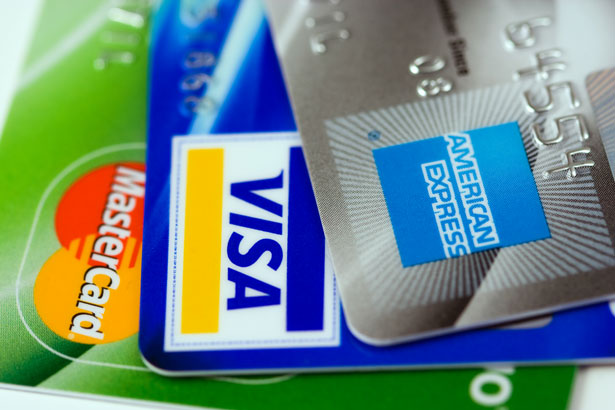What New Parents Should Look for in a Credit Card

Having a baby brings overwhelming joy but also comes with a lot of new expenses. From buying packs of diapers in bulk, to walking the grocery aisles for baby food, your expanding shopping list may mean it’s time to consider opening a credit card that fit your new family needs.
Data shows, in the first year alone, the cost of raising a baby can run up to $21,000, and the cost of raising a child to adulthood can increase after that. In order to maximize your financial flexibility and your credit card rewards, the credit cards you carry should evolve as your family and spending habits change. Read on for the qualities you should look for as well as some of the best credit cards for each stage of raising a family based on your goals and spending habits.
Parenting stage: Newborn baby
When you have a newborn baby, you will spend an outrageous amount of money on new baby gear – from diapers to medical bills and childcare. Having a credit card that gives you rewards and cash back for all those expenses can be beneficial and help ease the burden of all those extra costs. Choose an easy-to-use card that will reward you for the spending you’re going to do and skip cards that give you extra points for entertainment and dining out, since you’ll likely cut back in those categories. The Brim Financial credit card, for example, has built a unique rewards marketplace that provides points for the things you will need for your little one like groceries and retail items.
Parenting stage: School-age kids
As time goes on, you’ll spend less on diapers and baby food, but that does not mean spending costs will decrease. A USDA analysis found that family expenses actually increase as a child ages. Spending costs will go more towards extracurricular activities and your grocery budget will increase. New moms and dads will appreciate the Blue Cash Preferred® Card from American Express because this credit card offers the highest cash-back rate at U.S. supermarkets at 6%.
Parenting stage: Teenagers
Once your child is 16, many experts recommend making your teenager an authorized user on one of your credit cards to help build your child’s credit history. Keep in mind that just because you add your teen as a user doesn’t mean you have to give them the card. If your goal is to maximize rewards, The Chase Freedom and Discover It Cash Back all offers 5 percent cash back each category in different categories, ranging from dining to gas.
Parenting stage: Kids off to college
It’s never too early to start saving for your child’s college education. 529 college savings plans are your best bet when planning for future college costs. A 529 plan is a savings account where the money is used to pay for the beneficiary’s college expenses and K-12 tuition, tax-free. If your goal is to enjoy more time to yourself since your child is away at college, apply for a premium travel card with a big sign-up bonus to help pay for those planned vacations. The Chase Preferred and Reserve cards offer 3 percent back in both dining and travel.
The Takeaway
As your children grow from diapers to college caps and gowns, different credit cards can help you reach and manage your goals dependent on your household spending. Credit card users should switch cards frequently as their spending habits change and the issuers change their offerings.
Author: Michelle Couch, Financial and parenting writer
Michelle Couch is a freelance writer who covers family finance, personal finance, parenting and more. Couch lives in Maryland, MA and loves to leverage credit card points to travel with her husband and two children.


